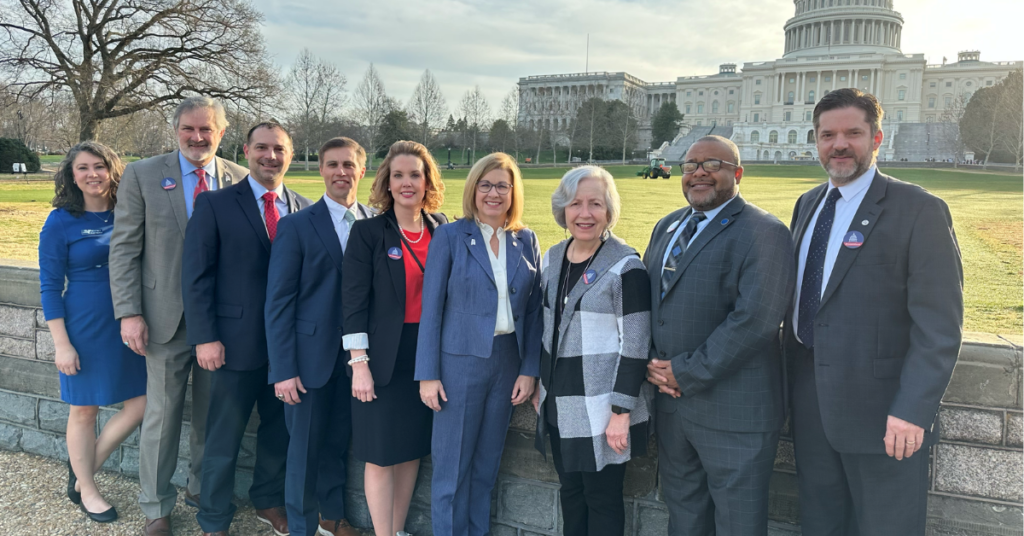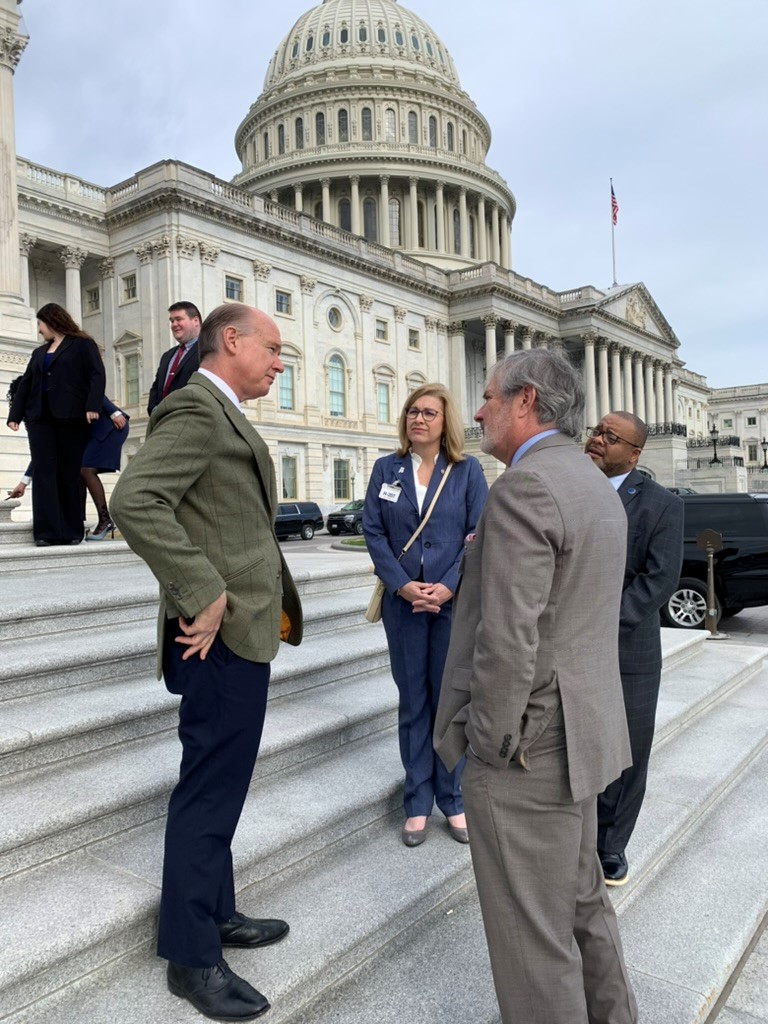On the final day of the National School Leaders Advocacy Conference last week, the nearly 400 NASSP and NAESP school leaders who attended the gathering in Washington, D.C, headed to Capitol Hill for a full day of meetings with their elected representatives. That included 10 school leaders from Alabama, who met with lawmakers and staff from every member of the state’s congressional delegation: two senators and seven representatives.
The group, like their counterparts from around the country, shared stories from their own schools and districts and talked to the lawmakers about a number of issues and proposed bills outlined in a joint NASSP-NAESP federal legislative agenda. The agenda focuses on three broad areas: educator shortages and the principal pipeline; improving school mental health, wellness, and safety resources; and federal K–12 education budget priorities.

Karissa Lang, the principal of Crestline Elementary School in Hartselle, AL, urged lawmakers to increase funding for special needs students through the Individuals with Disabilities Education Act (IDEA). When it was passed almost 50 years ago, the law mandated the federal government to provide 40% of the funding for special needs students. That figure is currently about 13%, Lang said, which means that her district primarily uses local funds for staff like the 16 paraprofessionals in her school who work with students with disabilities. “Any increase in IDEA funds would be tremendously helpful,” she told Rep. Robert Aderholt, a member of the powerful House Appropriations Committee and chair of the subcommittee on Labor, Health and Human Services, and Education.
Bonnie Sullivan, the principal of Pike Road Intermediate School in Pike Road, AL, talked about the growing challenges—especially mental and emotional—students bring to school these days. “We do our best, but we aren’t necessarily equipped to deal with them.” One result, she said, is that good veteran teachers are leaving the profession because of the stress.

Other Alabama leaders talked about the need for expanded mental health supports not only for students but also for the adults working in schools. Seth Taylor, the principal of Saks High School in Saks, AL, said that school leaders “are in this because we want to see people succeed in life. That’s where we get fulfillment, but we can’t do it without support. We’re in this for kids, but the grown people in school need support too.”
Vic Wilson, the executive director of the Council for Leaders in Alabama Schools (CLAS), an association that represents more than 4,000 school leaders in the state, urged the lawmakers to maintain federal funding for Title II, which supports professional development for educators. Alabama is a leader in providing mentoring and professional learning opportunities for school leaders, and federal support could help expand those offerings to more leaders.
The lobby day came on the same day that the House voted to force the Chinese government to sell TikTok or face a ban on the app. The Alabama school leaders talked to the lawmakers and staff about how the overwhelming presence of social media in schools poses new challenges, with even kindergartners bringing smartphones to school, and students facing cyberbullying at all hours of the day.
In addition to lobbying together with their fellow Alabamians, the school leaders enjoyed their time at the annual advocacy conference connecting with colleagues from every state. Retired principal Jill Eaton, who is a former national president of NAESP, said that it’s always great to hear what principals in her state are doing, but “after spending three days with principals across the nation, I see that we all share the same issues.”
